With Christians under fire throughout North Africa and the Middle East, we need to remember the persecuted and learn from their steadfastness amidst suffering. 25th July marks the anniversary of a dreadful atrocity in Cape Town, a terrorist attack on St. James Church of England, which left 11 people dead and over 50 wounded.

Sanctuary Desecrated
At about 7:30pm, on Sunday, 25th July 1993, while the congregation of 1,400 listened to a hymn of worship, a group of APLA terrorists burst into the church and opened fire with automatic weapons.
Eye Witness Accounts
“I noticed the handle of the side door facing the congregation turn and then the doors were kicked open. A black man wearing some kind of overall was standing in the doorway. He was carrying an assault rifle. As he stepped forward he raised the rifle, cocked it and fired it on full automatic directly into the congregation.”

Another eye-witness described it this way: “I saw this man kick open the door next to the stage and holding his rifle from the hip he opened up on us spraying bullets across a wide arc into the packed congregation. But before he even opened fire, two other black men who seemed to be wearing some olive green uniforms lobbed two hand grenades into the centre of the church.”
“There was this trail of smoke from the grenades and a few puffs of smoke from the first shots fired. The grenades were still in the air when he started firing.”
“As I dived under the pew for cover, I heard two grenades explode. I looked up and saw pews sticking up into the air. The firing went on for a while and then suddenly everything was quiet.”
When War Comes to Your Neighbourhood
For many years Frontline Fellowship has taken the Gospel to the war zones. On Sunday, 25th July 1993, the war came to us. Our Mission headquarters was a few metres from St. James on the same road. Several of our workers were members and both my father and my brother were converted at St. James.
I had just been singing with my daughter, Andrea and was about to pray with her before putting her to bed when the phone rang. “It was the worst nightmare, Peter, St. James has been attacked by terrorists.” As I sped to the church my mind reeled with the implications. I thought of my many friends there and prayed that they would be safe. Vivid memories of blood splattered churches and scenes of massacres in Angola and Mozambique flooded my mind.
Storm
As if in sympathy with the storm in many hearts, lightning flashed across the sky and the heavens wept in a blinding downpour of torrential rain. Above the roar of the rain, the air was filled with wailing sirens from convoys of ambulances, police vehicles and fire engines as they converged upon 3rd Avenue, Kenilworth. Flashing lights and flashing lightning lit up a scene of dazed survivors fleeing from the church, weeping churchgoers praying in the rain and frantic relatives searching for loved ones.
Shocking Scene
I was soaked as I stumbled into the church. The tiles in the foyer were smeared with blood. Inside the church, there were several bodies lying on the blood-stained carpets, or on shrapnel-scarred pews. Some wooden pews were overturned. There was a hole in the carpet where one grenade had exploded. Prayer books, music sheets, welcome cards and Bibles were strewn amongst the pools of blood. The ceiling was pockmarked with shrapnel.
Emergency Workers
Rescue workers were working swiftly and efficiently. Some of the wounded were being cared for inside the church. Others were being carried out on stretchers to the waiting ambulances. A broken pew was used to transport one person. Pockets of Christians sat, or stood, holding hands and praying. The police moved swiftly, but with sensitivity, to clear the church sanctuary of all but emergency workers. Then they began to separate eye-witnesses for questioning.
I located several friends and then began to help serve tea to the shocked survivors. Only later, as I began to hear the different testimonies of those involved, did the full scale and horror of the attack strike me.
Personal Testimonies
Mrs Marita Ackermann was shot in the chest at close range. She died about 30 minutes after arriving at the hospital. Marita had twice triumphed over cancer and she had helped start an outreach ministry to Khayelitsha and had also initiated an outreach ministry to Russian seamen passing through the harbour in Cape Town. Marita left behind her husband and three children, Braam, LiesI and Pierre. She was buried on her birthday.
Mr Lorenzo Smith had his wife Myrtle die in his arms. A piece of shrapnel had pierced her heart. They had been married for 21 years. She left behind her husband and her two children, Craig and Mandy, who were not hit in the attack.
Peter Gordon, who was wounded in the attack, saw his wife Denise murdered next to him. Denise left behind her husband and her little daughter, Sarah.
Sacrifice
Seventeen-years-old, Richard O’ Kill died instantly from a bullet through his head as he flung himself across two young friends, Lisa and Bonnie, to shield them from the line of fire.

Twenty-one-years-old Gerard Harker died instantly as he dived on top of one of the hand grenades, absorbing the full blast in his body to protect the lives of those around him.
A police spokesman praised the selfless action of Gerard and said that his act of sacrifice undoubtedly saved the lives of many others by absorbing most of the blast. Gerard’s brother, 13-years-old Wesley, also died in the attack. They left behind their elder brother Shaun (23) and parents Dennis and Dawn Harker.
Four of the slain were Russian and Ukrainian sailors – Valentin Varaksa, Pavel Valujev, Andrey Kajl and Oleg Karamzin. Another victim was Guy Javens.
Crippled
Of those victims crippled in the attack, the most heart-rending situation is that of Ukrainian sailor Dimitri Makagon. Both his legs were ripped off when one grenade fell in his lap. His right arm had to be amputated and both his eardrums burst in the blast. Dimitri, who was 23-years-old, was earning money as a sailor in order to pay for his wedding upon his return. The St. James Church flew out his fiancée, Olga and started a fund for the victims of the massacre.
Wounded
A medical student, Gillian Schermbrucker, narrowly escaped death when a piece of shrapnel pierced her lung and an artery. Her feet were also badly damaged yet she still sang a hymn to comfort her friends as she lay bleeding on the church floor.
Murderous Tools
Several survivors expressed their amazement that more people had not been killed. Police investigators agreed. The M26 fragmentary hand grenades had nails attached to provide additional shrapnel. If Gerard had not covered the one grenade with his body more would have been killed. If another member of the congregation had not shot back, apparently wounding one of the terrorists, then many more would have been shot.
Shooting Back
After the grenades exploded, one of our missionaries, Charl van Wyk, returned fire with his 38 snub-nosed revolver. One bullet wounded the gunman who was firing into the congregation. The shooting stopped and the attackers immediately fled. Charl then pursued the terrorists into the parking lot and fired at their getaway car as it sped off into 3rd Avenue. When the police later recovered the terrorists’ getaway car blood-stains indicated that at least one of the attackers was wounded.
Saving Lives
If one compares the St. James massacre with similar atrocities in Zimbabwe, Mozambique, Angola and Sudan – it becomes apparent that many more people would have died had Charl not fired back. An official Commendation by the Police Commissioner N.H. Acker, stated: “On 25 July 1993, Charl Adriaan Van Wyk endangered his own life in warding off the attack perpetrated on the St. James Congregation in Kenilworth. His action in pursuing the suspects on foot and returning fire prevented further loss of life. One of the suspects was wounded in the incident and was later arrested.”
Why?
In numerous reports on the St. James massacre, the questions have been asked: Who could possibly want to attack a congregation of Christians worshipping in a church? What could anyone hope to accomplish through such senseless slaughter? To these questions Christians have added another: How should we as believers respond?
Christians Under Fire
When I saw the shocking carnage at St. James Church, it immediately brought similar bloody scenes flooding back into my mind. Over the last 38 years of missionary work, I have personally come across many similar atrocities, especially in Angola, Mozambique, Nigeria, Rwanda and Sudan. In August 1983, Frelimo troops killed 5 pastors and burnt down all 5 churches in Maskito village, Zambezia province, Mozambique. In September 1983, Frelimo troops killed over 50 Christians and burnt a church down in Pasura village. At Chilleso Evangelical Church, in Angola, Cuban troops shot 150 Christians during a church service. At New Adams farm in Zimbabwe, 16 missionaries and their children were murdered in November 1987.
Churches Attacked
Over 5 years, between 2010 and 2015, Muslim mobs and Boko Haram terrorists bombed and burned down 1,000 churches, killing 17,000 Christians in Nigeria. In Sudan, hundreds of churches have been bombed and burned. Many hundreds of churches have been attacked in Syria, Iraq, Egypt, Ethiopia and Eritrea and all churches in Somalia were destroyed by 1993. One could continue to recount literally hundreds of similar atrocities against Christian churches, the fact is that churches have often been the target of Muslim extremists and Marxist terrorists.
What Do Such Terrorists Aim to Accomplish?
In answer to the second question, as to what anyone could hope to accomplish through the attack at St. James, we must note that it is the aim of terrorists to instill fear in the hearts of their target community. To paralyse people into inactivity and non-resistance. To induce people to flee the country, or at least to be too afraid to fight back. An additional aim of terrorism is to provoke an unreasoned and extreme response, to provoke counter-terrorism, which would then be exploited for propaganda purposes.

The Aim of Persecution
The aim of persecution is not to kill Christians. Sending believers to meet their Lord in Heaven hardly achieves the purposes of evil. No, the aim of persecution is to shock Christians into fear and inactivity. To paralyse and neutralise the church. Only if one gives in to this fear and allows oneself to be intimidated into silence and compromise does the enemy achieve his objectives.
How Are We to Respond?
This should encourage us not to betray the Faith for which the martyrs have died. The only appropriate response to such massacres is for us to be faithful to Jesus Christ and His Word – The Bible. We dare not allow the fear of man to divert us from fulfilling the Great Commission of our Lord Jesus Christ. The main thing is to keep the main thing, the main thing. We are to love the Lord our God with all our heart, soul, mind and strength and we are to love our neighbour as ourselves… making disciples… teaching obedience to all things the Lord has commanded.
Political Exploitation
In this context, it is shameful that some sought to exploit such tragedies to enhance their own public image or to promote inter-faith services. As I wrote in the following letter to a Cape newspaper:
Hypocrisy
“It is hard for us to take politicians or Archbishop Tutu seriously when they so shamelessly milk tragedies like the St. James massacre for media coverage and to advance their political agenda. I find it offensive that certain priests and politicians have cynically exploited the Sunday massacre for their own political ends.
“With the ANC’s abysmal human rights record of placing landmines in farm roads, car bombs in public streets and limpet mines in shopping centres and restaurants, they are the last people who have the right to condemn violence. The thousands of victims of ANC necklace murders, petrol bomb attacks, stonings and shootings and those dissidents tortured in ANC concentration camps bear eloquent testimony to the ANC’s real position on violence.
“As for Tutu – how could he barge into St. James and lie to the policemen on duty, claiming that he was the head of the denomination, in order to gain access to the site of the massacre? Most people are not aware that the Church of England in South Africa (CESA) is an entirely separate denomination from Tutu’s Church of the Province of SA (Anglican) denomination. Yet surely Tutu is aware that he is not the head of the CESA!
“For Tutu to have gained access for his media entourage to St. James by deception and then to have desecrated the sanctuary by turning it into a media circus to exploit this tragedy for his image overseas is despicable.
“Other political activists in the guise of the priesthood have suggested that we use this opportunity for a ‘reconciliation’ service. St. James is a fully multi-racial church that has opened its doors to all races at all times. Our church has an outreach to Khayelitsha and offers Bible studies in Xhosa on a weekly basis. We have always worked for reconciliation; first to God and then to man. St. James does not have to use this tragic event to prove our commitment to reconciliation.
“The Church of England in South Africa is an Evangelical denomination which holds to the Inerrancy of the Bible as God’s perfect Word. CESA holds to the full Deity of our Lord Jesus Christ and to His bodily Resurrection from the grave. We proclaim salvation by the Grace of God, through the Atonement of Christ, received by faith. For this reason, it would betray the martyrs who were killed on Sunday if we were to partake in an inter-faith service with those who reject this Gospel.
“The greatest tribute and memorial which we could erect in honour of the victims of the massacre would be for us to remain faithful to Jesus Christ and His Word, the Bible. May many more come to Christ in true faith and repentance.”
Manipulation by High Profile Atrocities
I also noticed that every time the negotiation process stalled and reached a deadlock, some high profile atrocity occurred which was then used to accelerate the process of hurtling this country towards the transitional executive control which the socialist “liberation forces” so desired. Their expressions of outrage were hard to take seriously. Their actions, stained with the blood of thousands of innocent victims, spoke far louder than their words.
How Then Should We as Christians Respond?
Which brings us to the third question: How should we as believers respond? In any crisis, or tragedy, we need to turn to God and cast all our burdens and frustrations upon Him in prayer. We need to seek answers and guidance from studying the Word of God. Many survivors of similar atrocities have found tremendous comfort and strength through praying the Psalms.
At the mid-week service, three days after the massacre, the church was packed almost to its capacity. Bishop Frank Retief opened the service by reading Psalm 11: “In the Lord I take refuge. How then can you say to me: Flee like a bird to your mountain? For look, the wicked bend their bows; they set their arrows against the strings to shoot from the shadows at the upright in heart. When the foundations are being destroyed, what can the righteous do? The Lord is in His holy Temple; The Lord is on His heavenly throne. He observes the sons of men; His eyes examine them. The Lord examines the righteous, but the wicked and those who love violence His soul hates. On the wicked He will rain fiery coals and burning sulphur; a scorching wind will be their lot. For the Lord is righteous. He loves justice; upright men will see His face.”
Frank Retief said that many had commented on the calmness of the St. James congregation in the face of this tragedy. “While we are shocked, stunned, shattered, hurt and angry at the senselessness of what has happened, we also have a sense of peace.”
Triumph Amidst Tragedy
At the Sunday evening service one week after the massacre, over 2,000 people packed the church and the overflow facilities. If the aim of the terrorists had been to terrify people into avoiding the church, they had clearly failed.
At that service, Rev. Frank Retief outlined a Biblical response to the tragedy, which I summarised as follows:
- The world is not our home. We are pilgrims passing through. Do make a meaningful contribution to improving society, but don’t get too caught up in materialism and personal ambitions. We won’t live forever.
- We must believe in a Day of Judgement. If evil is not finally punished then this world is meaningless. The wicked may seem to prosper for a time, but a just God will deal with sin. Only Christians have the spiritual resources to cope with such tragedy.
- Life is uncertain. None of us know how long we will live. Spiritual apathy is dangerous. We need to be jolted awake.
- There is a constant need to re-examine ourselves. Is your faith genuine or nominal? Watch out for temporary emotional motivation. Be done with empty words. Do away with frivolous things. Be serious about your faith. Get involved in the life of your church and in the lives of others.
- Do not be ruled by fear. Our trust must be in God. We fear God and no one else.
Testimonies of Grace
As we learned to cope with the shock and sense of loss, many testimonies of God’s grace and sovereignty began to surface:
The attack took place on St. James Day, the day when the Church commemorates the first martyrdom of an Apostle (Acts 12:2-3).
The attack took place five minutes after the children had left for a children’s service in a separate venue.
The attackers had apparently wanted to burst through several doors simultaneously, but all the other doors were locked on that cold winter night.
Excerpts of the un-preached sermon of Rev. Ross Anderson were printed in local newspapers. One verse, in particular, stood out: “Jesus said to her, ‘I am the Resurrection and the Life. He who believes in Me will live, even though he dies.’” John 11:25
One man testified that as he pushed his wife’s head down, he felt a bullet whistle over the back of his hand and heard it slam into the wall behind.
Another husband pushed his wife flat seconds before a bullet smashed into the backrest against which she had been sitting.
One Ukrainian seaman, Demichev Vladimir testified of how Marita Ackermann had led him to Christ: “I have been a seaman for 28 years and never in this time have I met such warm and kind hearted people as Marita and Dawie Ackermann. I met Marita in October last year, my first time in Cape Town. Marita gave me some papers to read about our Lord. Before that, I was an atheist. Marita invited me and my crew to church and our attitudes changed as we began to read and discuss the Bible.”
Just three weeks before the massacre 72 Russian and Ukrainian sailors had made public commitments to Christ.
Marita’s favourite verse was Philippians 3:10: “I want to know Christ and the power of His Resurrection and the fellowship of sharing in His sufferings, becoming like Him in His death.”
Other members of the Church have shared these testimonies: “Possessions and position are no longer important to us, these things last only for a short time.”
“When we keep our mind on God, God keeps our mind at peace.”
“God is our refuge and our strength, an ever present help in trouble.” Psalm 46:1
On the Order of Service bulletins handed out at the main funeral service on 29th July this passage was quoted: “Who shall separate us from the love of Christ? Shall trouble or hardship or persecution or famine or nakedness or danger or sword?… No, in all these things we are more than conquerors through Him who loved us. For I am convinced that neither death nor life, neither angels nor demons, neither the present nor the future, nor any powers… will be able to separate us from the Love of God that is in Christ Jesus our Lord.” Romans 8:35-39
The Gates of Hell Shall Not Prevail
Frontline Fellowship’s official letter of sympathy to St. James Church included the following message: “Jesus Christ is building His Church and the gates of hell will not prevail against it. You cannot destroy the Church by attacking buildings. The Church is not buildings, but people. People who love Jesus Christ. People who have a relationship with God as their Father. People who have been changed by the Holy Spirit. One cannot kill Christians by sending them to Heaven. Death for the Christian is not final. Jesus is the Resurrection and the Life… I rejoice in the assurance that the great work which He has begun at St. James will not falter, or be distracted, from the Great Commission.”
A Spiritual World War
Such traumatic experiences remind us of the reality of the spiritual war in which each of us is engaged. There is a life and death struggle between the Kingdom of God and the forces of satan. Outside of Christ, man is desperately wicked. “It is appointed unto man once to die and after that the judgement.” Hebrews 9:27. God is just and He will ultimately reward the faithful and punish the wicked.
We need to live our lives for the Glory of God, to the fullest.
“Only one life – it will soon be past – only what’s done for Christ will last.”
Originally published at frontlinemissionsa.org
Shop For Night Vision | See more…
Shop For Survival Gear | See more…
-
Sale!

Mesh Shooting Hunting Vest with Multi Pockets
Original price was: $59.99.$39.99Current price is: $39.99. Add to cart -
Sale!

Stainless Steel Survival Climbing Claw Carabiner Multitool Folding Grappling Hook
Original price was: $19.99.$9.99Current price is: $9.99. Add to cart -
Sale!

Tactical Camo Nylon Body Armor Hunting Vest With Pouch
Original price was: $49.99.$39.99Current price is: $39.99. Select options This product has multiple variants. The options may be chosen on the product page


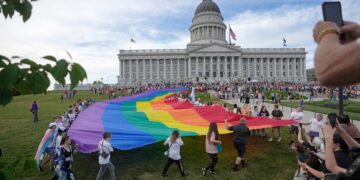
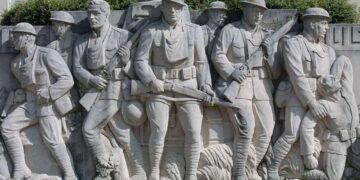


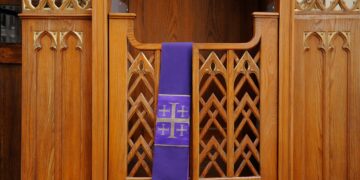
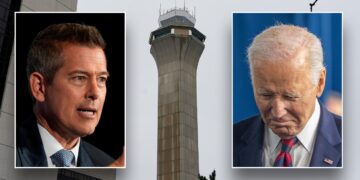
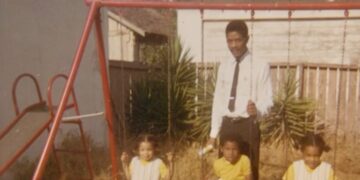
























 Reaction & Commentary
Reaction & Commentary












